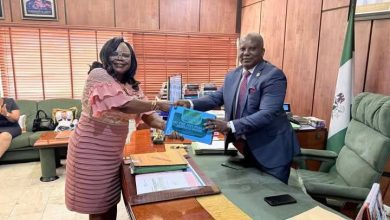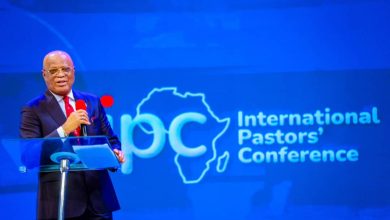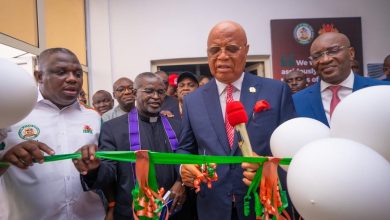
Throughout history, the fundamental pillar of democracy has been its commitment to inclusivity. Democracy acknowledges that the people and the government are inherently intertwined; hence, the famous definition of democracy; “a government of the people, by the people, and for the people.” This philosophy underscores the principle that every citizen should have the opportunity to participate in leadership roles, promoting decentralisation and ensuring that everyone has a chance to hold positions of power at different intervals.
A prominent way of ensuring that the intent of democracy as explained in the first premise does not fail is the concept of zoning. My political dictionary defines zoning as a political practice in Nigeria in which entities decide to rotate power across the entire units that make up a geopolitical zone. Marrying the concept of democracy and this definition, therefore, will ensure that the power of the people goes around the people equally and in a subtle way, allowing the impact of governance to diffuse to every part of society inhabitable by the governed.
It is therefore safe to say that zoning is sacrosanct to maintain peace, order, and development in our society.
However, the subject of my writing is the Esit Eket local government area, an entity that has experienced both remarkable and flawed leadership. While every government has its operational tenets and fluctuating successes, the distinctiveness of our existence cannot be denied. Over the years, we have enjoyed fruitful partnerships with the central government, the people, and our leaders. Conversely, we have also weathered failures in leadership and governance. Now that we aspire for a bright future, we must confront the looming challenges that threaten our harmonious coexistence as a people destined for greatness.
There is no denying that we are living in a unified yet segmented society. This segmentation facilitates the equitable distribution of societal resources and, more recently, political power. For instance, Esit Eket is politically divided into distinct zones, namely Zones A, B, and C. These segments are made up of different wards of Esit Eket LGA. Zone A consists of 3 wards; Zone B consists of 4 wards; and Zone C consists of 3 wards. These zonal divisions are not meant for segregation but for the democratisation of society, easing the rotation of power and the equitable distribution of resources. Despite this organisation, just like in the gathering of God’s children, as depicted in the Bible’s book of Job, the devil will also sneak in to plant discord such that even amidst unity, challenges emerge.
Let’s reminisce together.
Esit Eket has experienced the dividends of good governance since its inception in 1981. The zoning arrangement, initiated by elders, was adhered to rigorously until some individuals aligned themselves with adversaries of democracy. It’s crucial to note that my concern transcends party partisanship, focusing instead on the collective interests of every Esit Eket indigene, irrespective of party affiliations.
In 2003, elders convened and agreed upon a zoning arrangement, commencing with Zone A. This decision was spearheaded by the former speaker, Chief Barr. Bassey Essien, and the former chairman, Rt Hon. Ayanga Ayanga. The political leader, Elder. Ben Udobia, was entrusted with the responsibility of mobilising his constituents in Zone A to produce a leader, resulting in the emergence of Hon. Imo Udobia as the inaugural beneficiary of the zoning arrangement.
Following Udobia’s tenure as executive chairman from 2003–2005, the leadership transitioned to the late Hon. Victor Isangedehhi from Zone B, who served as council boss from 2009–2012. He hails from Uquo in Zone B. Subsequently, the mantle of leadership shifted to Zone C, where the late Hon. Ibanga Ettang, later appointed as the NDDC EDF, was elected; he served the council as Executive Chairman from 2012 to 2014. With this cycle complete, attention returned to Zone A, and Hon. Iniobong Robson assumed leadership. Incidentally, Hon. Iniobong Robson is from Ebiekpi in Zone A, and he has moved on to become the longest-serving local government chairman in the history of Esit Eket since its inception and in Nigeria at large. His tenure is detailed as follows: he held the transition committee seat from 2015–2017, then moved on to be elected as Executive Chairman, of Esit Eket LGA, where he served from 2017–2019.
The next tenure, which should have had a candidate from Zone B to serve from 2020–2023, saw Hon. Iniobong Robson being re-elected. This development altered the zoning arrangement, and despite some bought-over factions advocating for Etebe’s continued tenure, others insisted on doing the right thing, which was to cede power to Zone B. The tension that ensued fueled the “ON ZONE B, WE STAND” agitation, which was led by influential figures like Uyoata and Akan Etudoh. Eventually, consensus was reached, and Etebe’s pipers sang his tunes in justification of their paychecks. Now that the transition tenure is here, who do we have again? Hon. Iniobong Robson of Zone A! Perhaps some people’s names are engraved on the council seat, while others are written with pencils.
Unfortunately, ZONE C has experienced a representation hiatus as ZONE B has its representation in the form of Rt Hon. Dr. Usoro Akpanusoh in the House of Assembly, illustrating a divergence in leadership positions between ZONE A and ZONE B. Throughout these transitions too, both Zone A and Zone B held and continue to hold key political positions, including seats in the National Assembly, State House of Assembly, Commissionership roles, Political Leadership roles and ALGON Chairmanship positions.
My thoughts are sponsored by recent developments that despite the glaring pieces of evidence and pointers that ZONE C is next in line according to the established zoning arrangement, ZONE B has suddenly laid claim to the chairmanship, overlooking the fact that Etebe’s previous tenure was supposed to be theirs but had failed to assume it due to the political romance they had to retain the House of Assembly position for 8 years while sacrificing their Chairmanship position. You cannot eat your cake and have it.
It’s worth noting that during the 2020 election, only candidates from Zone B stood up against the wrongdoings of some Zone B elders and ran for the Chairmanship. Kudos to individuals like Comrade Felix Udo, Engr Prefferd John, Com Alfred Nkpounam, and Hon Friday Udo who upheld their principles and contested the Chairmanship, despite not receiving support from the party. If the elders are in alliance with these preposterous actions, it will raise questions about the integrity of the established system given the significance of Zone C’s substantial voting strength.
Our forebears, in their wisdom, crafted an unbiased power allocation mechanism; why can’t we uphold it and honour the legacy that united our predecessors without discord?
In addition to its numerical and electoral significance, Zone C has demonstrated political maturity, fostering peace and steadfast support for successive governments. Having languished in anticipation, it’s time for ZONE C to rightfully claim the chairmanship seat. Failure to do so undermines peace and equitable representation and will beg the question of whether Zone C is still an entity of the Esit Eket Local Government Area.
In conclusion, while politics thrives on competition, let’s remember that healthy contestation enriches the democratic process. Therefore, to ensure regional balance, ZONE C must be given and allowed to claim its rightful place. Upholding the ethos of one Esit Eket, which has endured through generations, is essential for collective growth. Anything short of this is a breach of peace. May justice and equity be upheld.
Long live Esit Eket!
Long live Akwa Ibom State.
Dr. Abia Dan Abia is a European-trained medical practitioner, public affairs analyst, social thinker, ambassador of good governance, award-winning youth leader, and fitness enthusiast.




